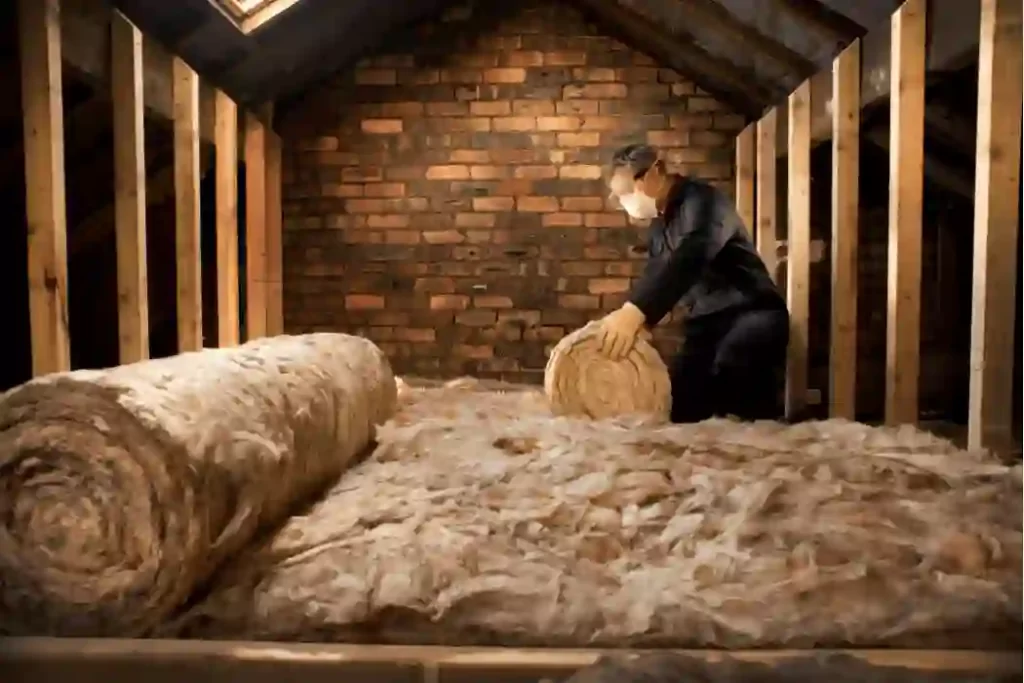As the world continues to prioritize the reduction of greenhouse gas emissions and the transition to renewable energy sources, one of the most effective ways individuals can contribute to this effort is by making their homes more energy-efficient. Insulation is a key element of this process, and it provides several environmental benefits that are worth exploring.
In this article, we will delve into the environmental benefits of insulation and why it is a crucial step toward achieving a greener home.
Reduced Carbon Emissions
Insulation can help reduce carbon emissions by minimizing the amount of energy needed to heat or cool a home. The less energy required, the lower the amount of carbon emissions released into the atmosphere. According to the US Department of Energy, homes that are not properly insulated can lose up to 30% of their heat, which means homeowners need to use more energy to maintain a comfortable temperature.
On the other hand, homes with proper insulation can significantly reduce the amount of energy required to heat or cool a home, resulting in a decrease in carbon emissions. According to the International Energy Agency (IEA), buildings account for approximately 28% of global carbon emissions, and improving insulation in existing buildings can reduce carbon emissions by up to 5%.
When undertaking a home renovation, prioritize insulation for a greener home, as it not only enhances energy efficiency but also contributes to a more sustainable living environment.

Improved Energy Efficiency
Insulation also improves energy efficiency by reducing heat loss through walls, roofs, and floors. When a home is properly insulated, it can maintain a comfortable indoor temperature without relying as heavily on heating or cooling systems, reducing the amount of energy required to maintain that temperature.
In addition, insulation also reduces the need for appliances to run continuously, which further reduces energy consumption. When appliances such as air conditioners, heaters, and refrigerators don’t need to work as hard, they consume less energy, which translates into lower energy bills for homeowners.
Lower Energy Bills
Another environmental benefit of insulation is that it can help homeowners save money on energy bills. As mentioned earlier, insulation reduces the amount of energy required to maintain a comfortable indoor temperature, which means homeowners can expect to pay less for energy bills.
The US Department of Energy estimates that homeowners can save up to 20% on heating and cooling costs by properly insulating their homes. In addition, insulation also reduces the need for appliances to run continuously, which can further lower energy bills.
Reduced Resource Consumption
The production and transportation of energy require a significant amount of resources, including fossil fuels, water, and land. By reducing the amount of energy required to heat or cool a home, insulation helps to conserve these resources and reduce the overall impact of energy consumption on the environment.
In addition, insulation can also help to extend the lifespan of appliances such as heating and cooling systems. When these appliances don’t have to work as hard to maintain a comfortable indoor temperature, they experience less wear and tear, which means they last longer before needing to be replaced. This, in turn, reduces the amount of resources needed to manufacture and transport new appliances.
Improved Indoor Air Quality
Insulation can also improve indoor air quality by reducing the amount of outside pollutants that enter a home. Proper insulation can seal gaps and cracks in a home’s exterior, which can prevent pollutants such as dust, pollen, and other allergens from entering the home.
In addition, insulation can also reduce the amount of moisture that enters a home, which can help to prevent the growth of mold and mildew. These substances can have a negative impact on indoor air quality and can cause health problems for occupants.
Conclusion
Insulation is a crucial component of a green home. It reduces carbon emissions, improves energy efficiency, lowers energy bills, conserves resources, and improves indoor air quality. As individuals work toward reducing their environmental impact, they can start by making their homes more energy-efficient through proper insulation.

